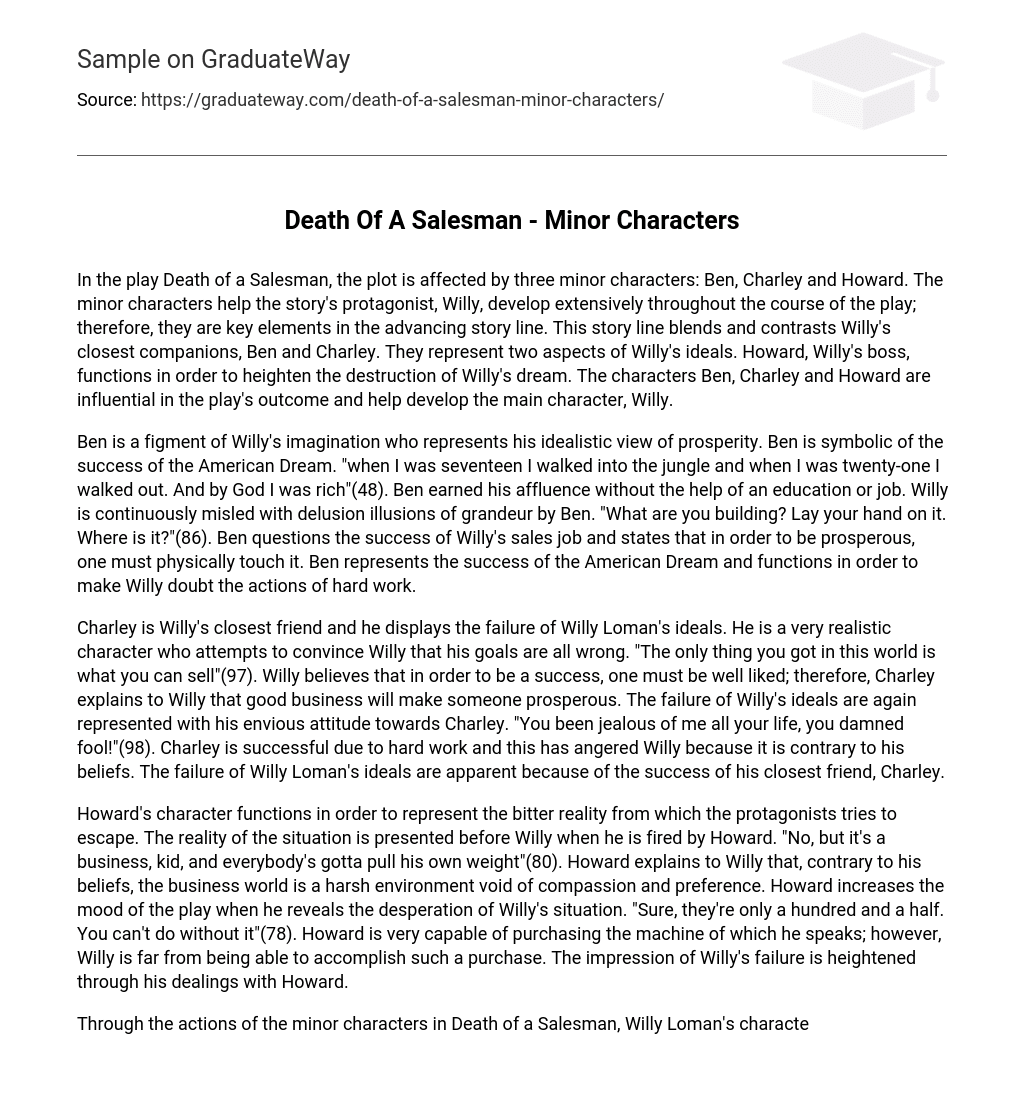In Death of a Salesman, the characters Ben, Charley, and Howard have a significant impact on the plot. They play a crucial role in developing the protagonist Willy as the story unfolds. These characters blend and contrast with Willy’s closest companions, Ben and Charley, representing different aspects of his ideals. Furthermore, Howard, who is Willy’s boss, contributes to the further deterioration of Willy’s dream. Ultimately, Ben, Charley, and Howard all play vital roles in shaping the outcome of the play and influencing the growth of its main character.
Ben is an embodiment of Willy’s imagination, representing his optimistic vision of wealth. Ben symbolizes the achievement of the American Dream, as demonstrated by his statement: “when I was seventeen I walked into the jungle and when I was twenty-one I walked out. And by God I was rich”(48). Without relying on education or employment, Ben achieved prosperity. Continuously deceived by delusions of grandeur from Ben, Willy is misled. “What are you building? Lay your hand on it. Where is it?”(86). Ben questions the success of Willy’s sales job, asserting that one must physically touch prosperity to attain it. Ben symbolizes the accomplishment of the American Dream and serves to instill doubt in Willy regarding the value of hard work.
Charley, Willy Loman’s closest friend, serves as a manifestation of the shortcomings of Willy’s ideals. In a realistic manner, Charley attempts to persuade Willy that his aspirations are misguided. According to Charley, prosperity stems from effective business practices rather than the need to be well-liked, which is what Willy believes. Willy’s envious disposition towards Charley further emphasizes the failure of his ideals. Charley reproaches Willy, stating, “You have envied me throughout your entire life, you foolish individual!” (98). Through hard work, Charley achieves success, causing resentment in Willy because it contradicts his own beliefs. The triumph of Charley, Willy Loman’s closest friend, underscores the shortcomings of Willy’s ideals.
The character of Howard serves to represent the harsh reality that the protagonist is trying to escape. Willy’s reality becomes clear when he is fired by Howard. Howard explains to Willy that the business world is unforgiving and lacks compassion or favoritism. This revelation by Howard intensifies the mood of the play as it exposes the desperation of Willy’s situation. While Howard can easily afford the machine he mentions, Willy is far from being able to make such a purchase. Willy’s failure becomes even more apparent through his interactions with Howard.
The minor characters in Death of a Salesman contribute to the development of Willy Loman’s character through their actions. Ben, Willy, and Howard play an important role in shaping the outcome of the story by offering a contrast to the protagonist. Their interactions allow readers to emotionally connect with Willy’s character and comprehend key moments in the plot. These interactions center around Willy’s extravagant fantasies about success and life.





